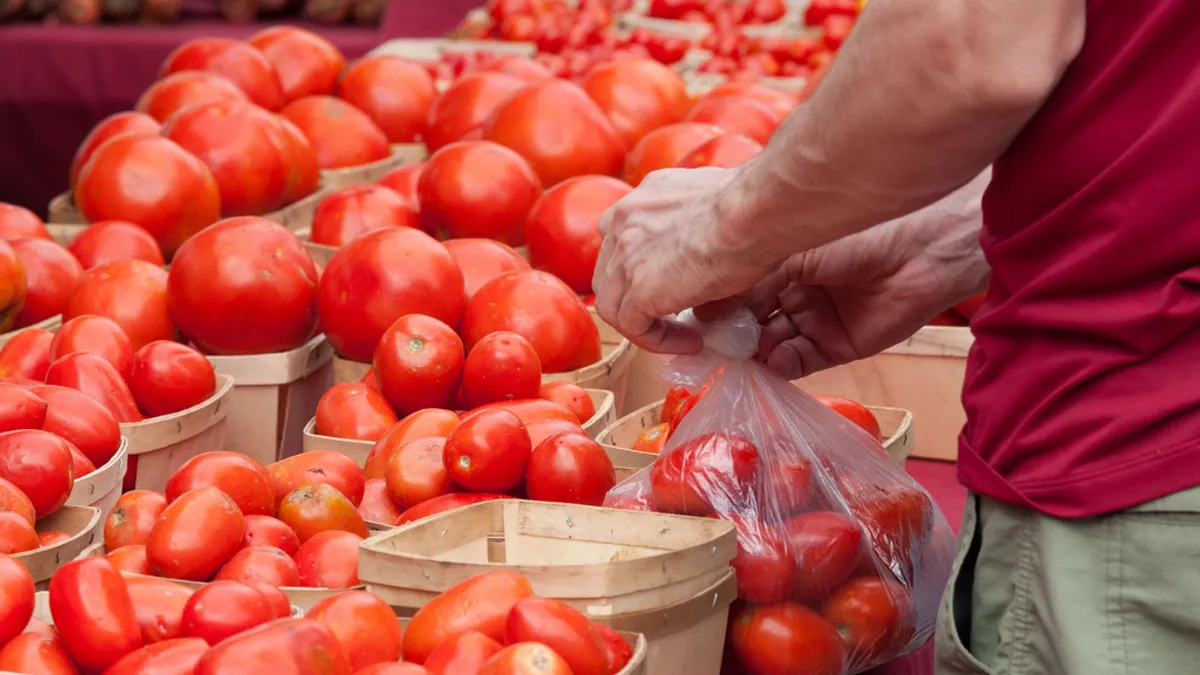Dive Brief:
- After more than a year of negotiations, the U.S. Commerce Department will no longer exempt Mexico from anti-dumping tariffs regarding Mexican tomatoes as of May 7, The Wall Street Journal reported.
- On Feb. 6, the Commerce Department notified Mexico it would withdraw from the 2013 Suspension Agreement on Fresh Tomatoes from Mexico at the end of 90 days — mandatory notice required by the agreement. The 2013 agreement raised the minimum acceptable sale price for fresh or chilled tomatoes exported from Mexico to the U.S. not intended for processing from 21.69 cents per pound to 31 cents per pound.
- Termination of the agreement also means an investigation into dumping practices will resume. The investigation, which began in the 1990s, stopped in 2013 with the start of the agreement.
Dive Insight:
The debate surrounding this move to withdraw from the 6-year-old agreement with Mexico demonstrates that President Trump's "Buy American" ethos is not a simple concept in today's economy.
Supporters of withdrawal are mainly suppliers of tomatoes and say it didn't serve its purpose of protecting American farmers. Supporters include Florida tomato growers along with Sen. Marco Rubio and nearly 50 other lawmakers largely representing Southern and Eastern states along with Michigan, California and Puerto Rico. In a letter to the Secretary of Commerce requesting termination of the agreement, these parties wrote Mexico's market share of tomatoes sold in the U.S. has gone from one third to half of the market.
"The U.S. tomato industry has been the canary in the coal mine for domestic fruit and vegetable production over the last three decades. Immediately terminating the suspension agreement will reinvigorate the anti-dumping investigation on fresh tomatoes from Mexico and send the message that the U.S. will ensure vigilant enforcement of our existing trade laws and trade agreements," said Rubio in a statement.
But other U.S. constituencies, mostly on the buy-side of industry, are less supportive of the tack by the Commerce Department. The Border Trade Alliance called the decision "a move that attempts to tilt trade policy in favor of parochial Florida farmer interests, but jeopardizes the health of the national agriculture industry."
The Fresh Produce Association of the Americas is also against withdrawing, stating: "Even a 5% reduction in supplies of Mexican tomatoes would result in consumers paying up to 25 cents more per pound at supermarkets, or up to $790 million more per year for tomatoes.”
There is still a chance that a resolution may be reached in the intervening 90 days, but the timing is particularly demonstrative of how no trade deal, no matter how specific, happens in a vacuum. With the USMCA still not ratified by the U.S., Mexico or Canada, these smaller fights may have an impact far beyond farms and grocery stores.













